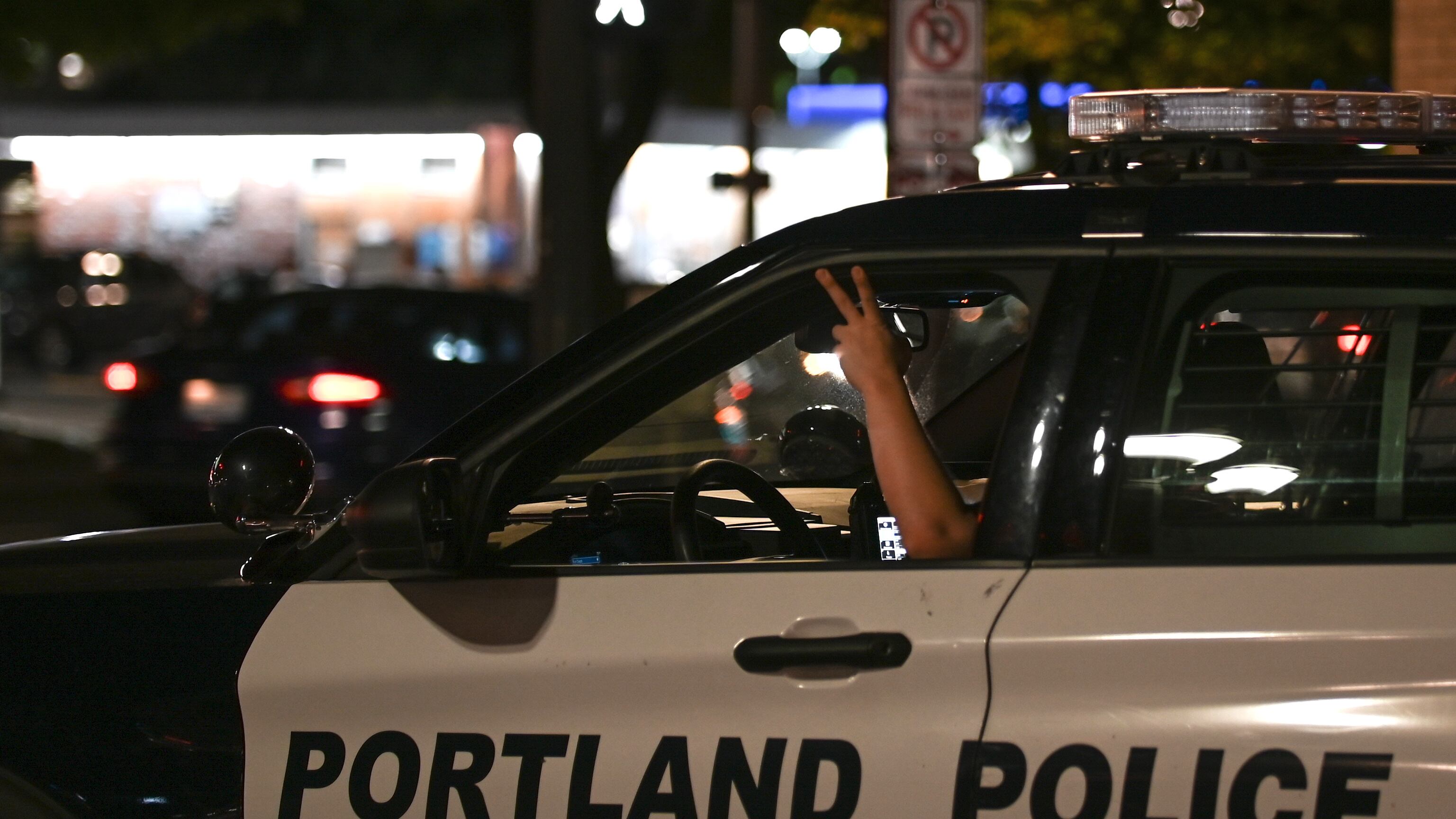Officer Brian Hunzeker has kept busy since the Portland Police Bureau placed him on paid administrative leave in late May.
Hunzeker resigned from his role as president of the Portland Police Association on March 16 due to what the union described as a “serious, isolated mistake related to the Police Bureau’s investigation into the alleged hit-andrun by Commissioner [Jo Ann] Hardesty.”
A city investigation into precisely what role Hunzeker played in spreading false rumors about Hardesty is proceeding, albeit slowly. In the meantime, Hunzeker, who worked as a traffic officer before winning election as union president in October 2020, is getting paid his normal salary to, in essence, stay home.
But in the three months since Hunzeker’s leave began, WW has learned, the former union head has repeatedly appeared in Multnomah County traffic court, which resumed remote hearings in early July after pausing for more than a year due to the COVID-19 pandemic.
Overtime records from the city’s Bureau of Human Resources, obtained by WW through a public records request, show that Hunzeker has made at least 11 court appearances between July 7 and Aug. 24. For each of those 11 days, Hunzeker reported working half an hour of overtime, for a total of 5.5 hours, for which he was paid $432.09 in overtime, in addition to his hourly wage of $48.55.
That’s a modest sum, but paying overtime to an officer who is otherwise idle fits with PPB’s history. A 2019 city audit criticized the bureau for lax oversight of officers’ overtime, which had cost the city nearly $16 million the previous year. “Some common-sense policies and procedures to limit overtime have fallen by the wayside or were never used in the first place,” the audit found.
Barbara Marcille, trial court administrator for Multnomah County Circuit Court, says the court does not receive information about the employment status of law enforcement officers and that, due to the high volume of traffic cases, the court uses a “database integration” system that sends notices of court appearances to Police Bureau personnel, who then “work with the schedules of their own officers.”
Marcille indicated that PPB has some level of discretion in determining whether to send a particular officer to court. (The Police Bureau did not dispute this claim when WW asked for a response.)
“After pausing in-person traffic trials last year due to the pandemic, on July 6, 2021, we began holding traffic trials with the parties appearing remotely. Officer Hunzeker is the citing officer in many traffic cases,” Marcille says. “It is up to the law enforcement officers and the leadership in their units to determine whether a particular officer appears at trial and how they are paid for their time.”
Police Bureau spokesman Sgt. Kevin Allen says officers on administrative leave are assigned to the personnel division, where they are essentially “on call” Monday through Friday from 9 am to 5 pm. During the workweek, officers on administrative leave must call in twice a day—typically at 10 am and again at 2 pm.
The premise of overtime—which is time and a half for PPB officers—is that police should get paid extra for performing work they don’t have time to accomplish during the standard 40-hour workweek. But the 2019 audit found that staffing shortages, particularly for patrol officers, were the main driver for Police Bureau overtime.
Allen says Hunzeker’s court-related overtime aligns with bureau policy.
“I can verify that an officer on administrative leave is given a schedule of 9 am-5 pm Monday through Friday,” Allen says. “So if he or she is called to appear in court at 8:30 am, which is when traffic court usually starts, then by PPA contract he or she would be eligible for overtime for the 30-minute difference. Officers placed on administrative leave are required to appear for court in response to a subpoena unless they have an excused absence.”
Indeed, the contract between the Portland Police Association and the city stipulates that officers on leave can receive overtime pay for court appearances: “Officers on approved leave of absence with pay or disability benefits will be authorized overtime for court appearances in excess of eight hours in a day or 40 hours in a workweek.”
Still, it is unclear why Hunzeker cannot start and end his shift 30 minutes sooner. It’s also worth noting that traffic court in Multnomah County is held remotely; in other words, the court appearances do not require extra time for travel and parking like they did before the pandemic.
A review of the Police Bureau’s overtime data, available on the city’s website, shows that court appearances make up 7.2% of the total overtime requests in 2021. The data also shows that officers whose assignment is listed as “Personnel: Leave of Service”—which consists of officers on leave pending an internal investigation, military leave or injury—make up only seven of the nearly 22,000 requests for overtime this year.

